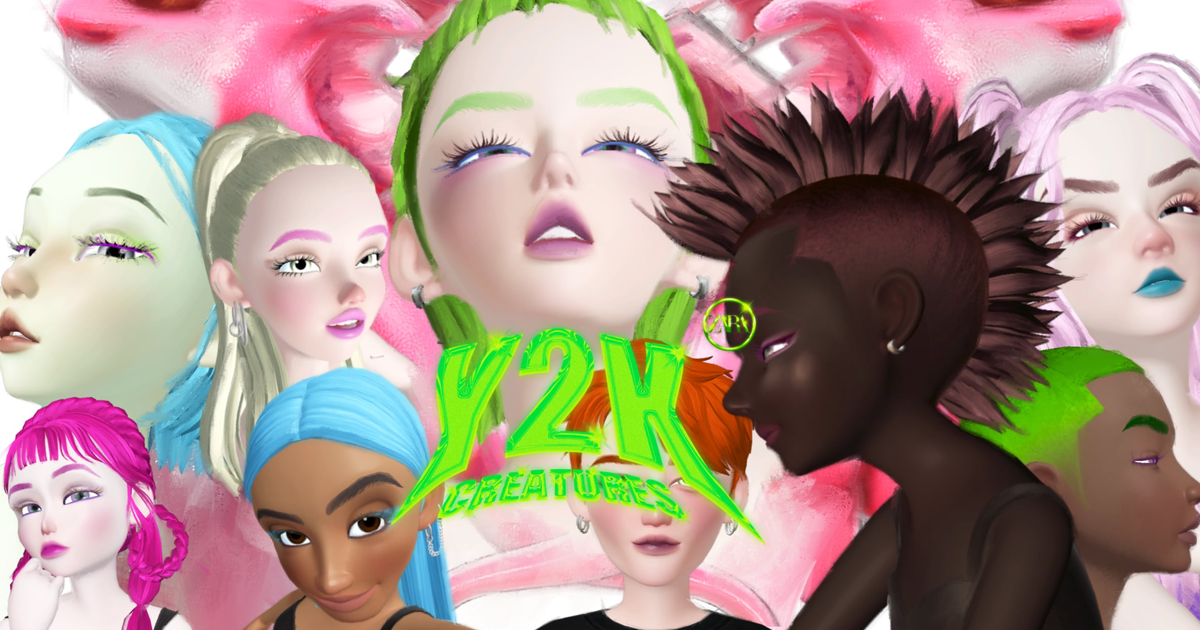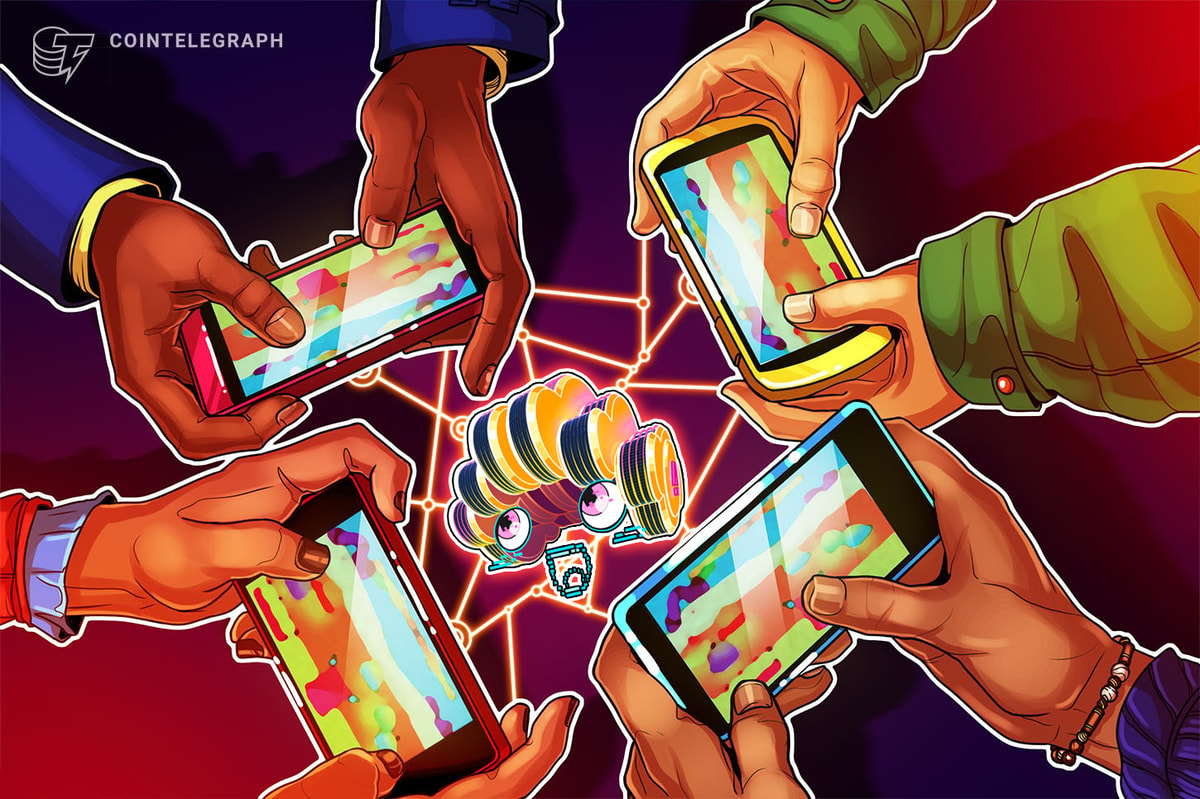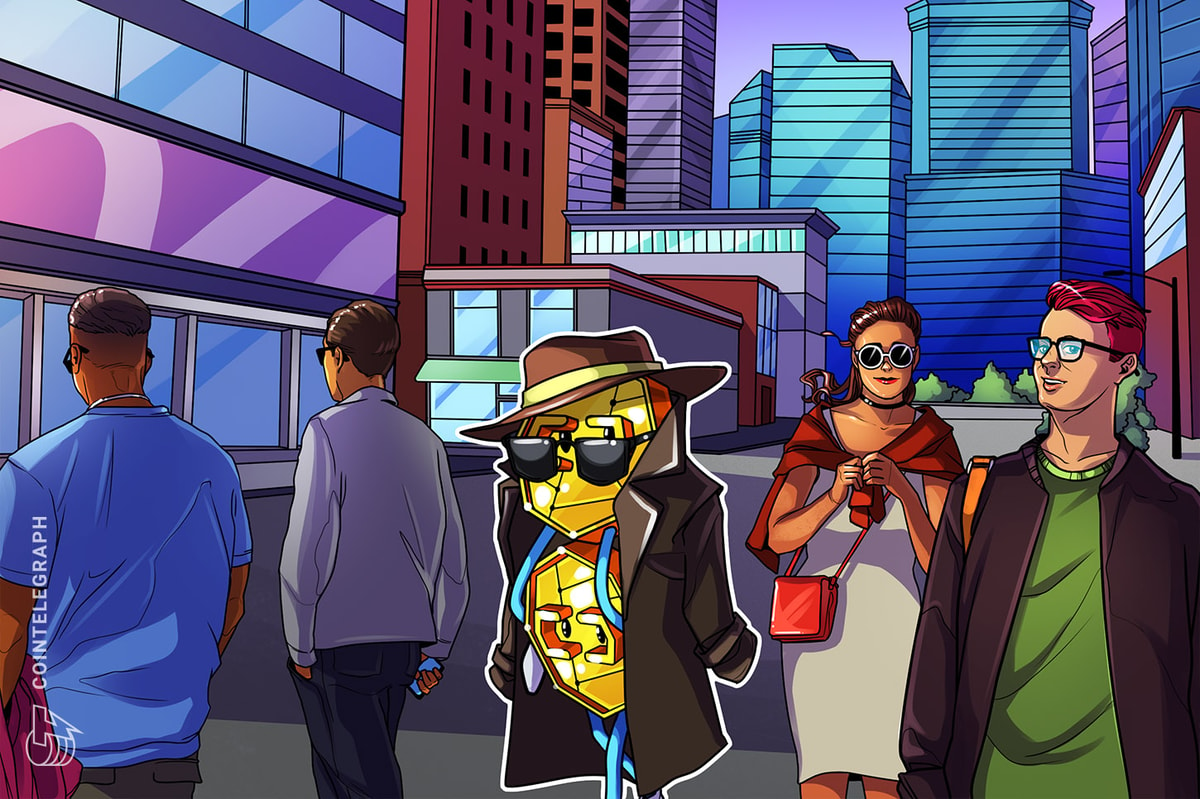The other day while aimlessly online shopping on the Zara website, I stumbled across a shopping tab labelled “Y2K | metaverse.” At first glance, I thought: “What the heck is this?” Out of curiosity, I clicked on it and there launched a digital universe I was not expecting. Images of neon animated models, which Zara calls “Y2K creatures”, surrounded by spacey graphics, posing with colourful hair and makeup. I couldn’t help but think, “Am I still on the same website?”
Back in September, Zara, in partnership with 3D avatar game developer, Zepeto, released a “phygital” collection on their platform. The launch included 10 new garments, a few accessories and shoes exclusive to Zara. Instead of being seen on human models, it was styled on their virtual 2000s-inspired avatars. Just from appearance alone, the clothes in the collection meet some of the criteria this aesthetic has: neon, cutouts, and a tight low-rise mini skirt. However, it doesn’t give the Paris Hilton or Destiny’s Child fantasy we expect from Y2K.
In the era of consistently shifting trends, it is even harder not to think that Y2K may have already had its time to shine. However, that obviously didn’t stop mega-brands like Zara from capitalizing on the trend’s attention.
Journalist Judy Berman writes, “Trendspotters have glommed on the Y2K nostalgia and end-times decadence in Gen Z’s nascent aesthetic sensibility…But what we’re witnessing goes far beyond cool teens and the extremely online to encompass anyone with free time, disposable income, and internet access.”
Zepeto, in this new business venture, may be on the right track in appealing to the current buying habits of Gen-Z. The metaverse in which the Y2K collection dropped is a booming phenomenon many brands are branching into. Within the past year, Gucci has collaborated with The Sims, Roblox, Pokemon Go, and Zepto to expand their consumer outreach with metaverse marketing.
Abi Buller from The Future Laboratory tells Vogue Business, “—allowing customers to create an alternative persona not only reflects but also complements and elevates their physical identity. Digital embodiment and the opportunities for convergence within fashion and gaming are especially poignant now as shoppers increasingly find themselves in online spaces.”
I have just heard about this new way to shop after seeing it via Zara. I have to say, being a part of the digital age of the fashion industry is very cutting-edge on their part. But I wonder if you could say the same about the Y2K trend. If anything, there is an evolution of Y2K taking place right now in the form of Gen-Z maximalism. As cool as the creation of this new buying method may be for their brand, I think it misses the mark in what it is trying to achieve because the clothes are simply… meh. And also a little confusing. The way it was released is more mythical than in the 2000s. Why is there a tiny dragon involved? Is he the designer? It’s become harder to sell me on this collection when brands like Heaven by Marc Jacobs, BARRAGÁN and even relaunches of classics like Juicy Couture and Ed Hardy do this aesthetic so much better.
As long as nostalgia continues to exist, so will the era-based trends like Y2K. As 2000’s archivist Rashida Renée tells HighsNobiety, “What I think of when I think of the early 2000s: retrofuturism.” So, in some ways, Zara got it right in serving as a platform for the fashion future. But is it too late to make clothes that match? Taking some possible pointers from fashion model and actress Devon Aoki or Maddy from Europhia would be a start.
To shop Zara collection: Y2K | Metaverse Special Edition
Read More: news.google.com









 Bitcoin
Bitcoin  Ethereum
Ethereum  Tether
Tether  XRP
XRP  Solana
Solana  USDC
USDC  Dogecoin
Dogecoin  TRON
TRON  Cardano
Cardano  Lido Staked Ether
Lido Staked Ether  Wrapped Bitcoin
Wrapped Bitcoin  Hyperliquid
Hyperliquid  Sui
Sui  Wrapped stETH
Wrapped stETH  Chainlink
Chainlink  Avalanche
Avalanche  LEO Token
LEO Token  Stellar
Stellar  Bitcoin Cash
Bitcoin Cash  Toncoin
Toncoin  Shiba Inu
Shiba Inu  Hedera
Hedera  USDS
USDS  WETH
WETH  Litecoin
Litecoin  Wrapped eETH
Wrapped eETH  Polkadot
Polkadot  Monero
Monero  Binance Bridged USDT (BNB Smart Chain)
Binance Bridged USDT (BNB Smart Chain)  Ethena USDe
Ethena USDe  Bitget Token
Bitget Token  Pepe
Pepe  Coinbase Wrapped BTC
Coinbase Wrapped BTC  Pi Network
Pi Network  WhiteBIT Coin
WhiteBIT Coin  Aave
Aave  Uniswap
Uniswap  Dai
Dai  Ethena Staked USDe
Ethena Staked USDe  Bittensor
Bittensor  OKB
OKB  Internet Computer
Internet Computer  Aptos
Aptos  NEAR Protocol
NEAR Protocol  Cronos
Cronos  BlackRock USD Institutional Digital Liquidity Fund
BlackRock USD Institutional Digital Liquidity Fund  Jito Staked SOL
Jito Staked SOL  Ondo
Ondo  Ethereum Classic
Ethereum Classic